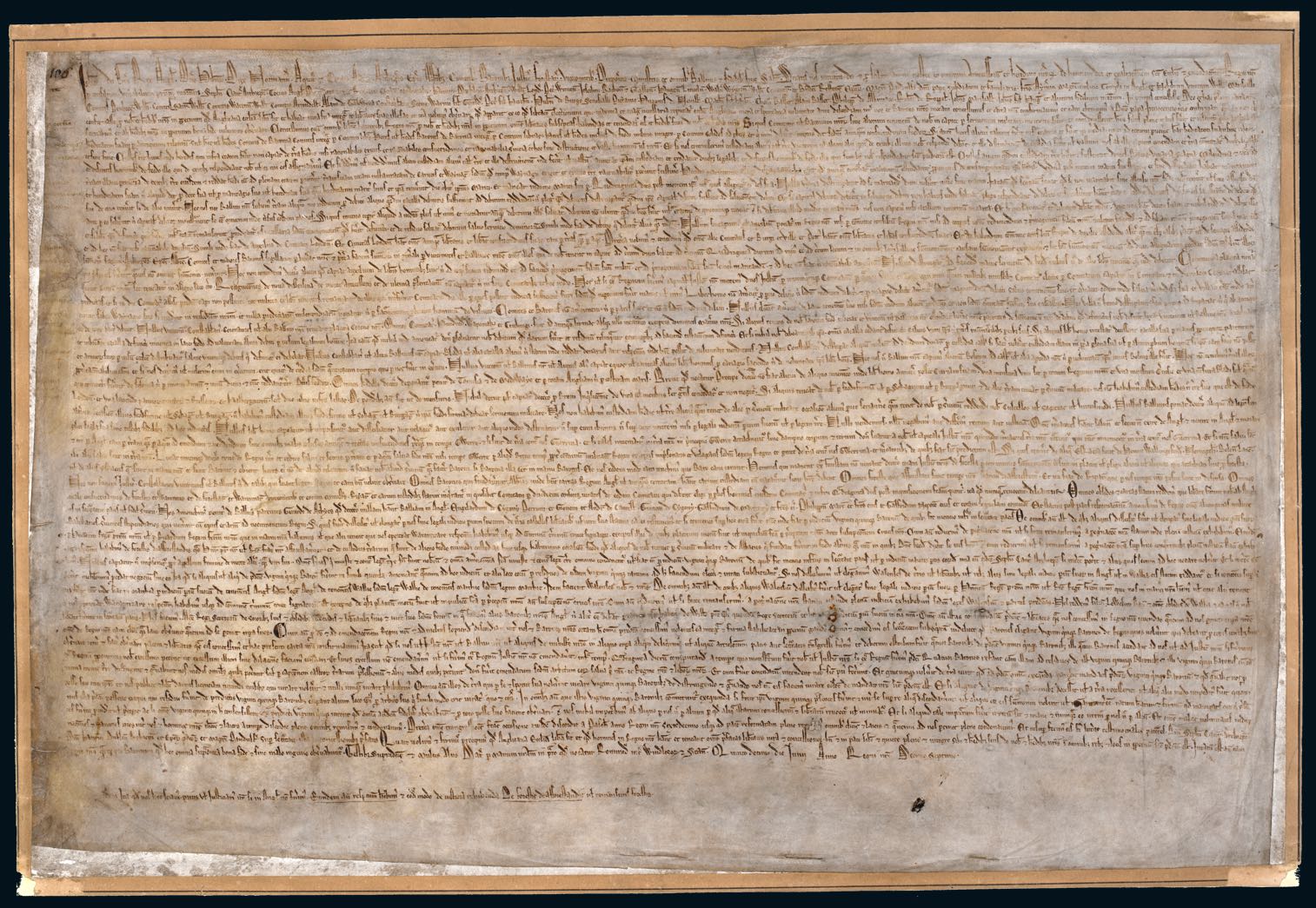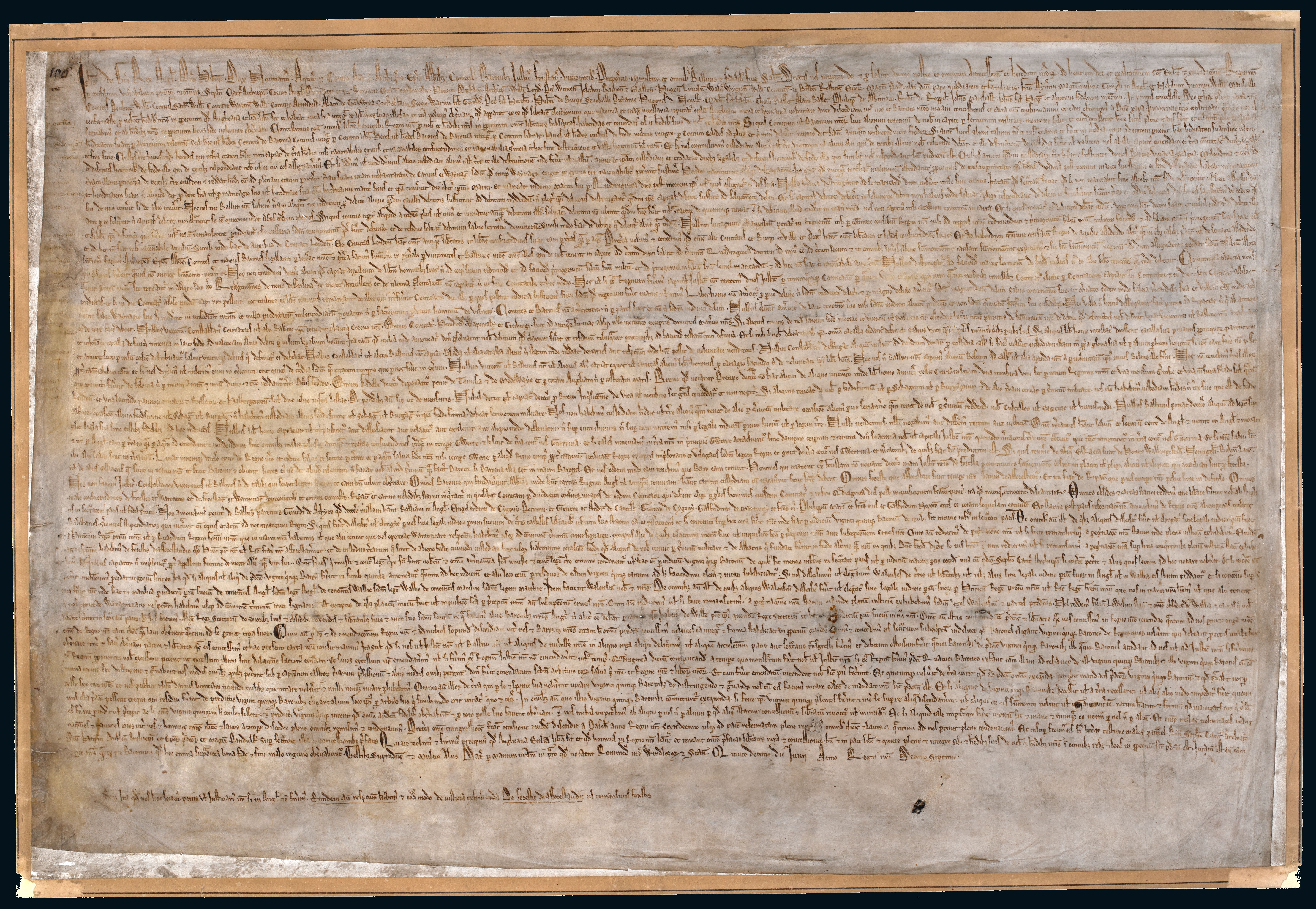
Si nos disseisivimus vel elongavimus Walenses de terris vel libertatibus vel rebus aliis, sine legali iudicio parium suorum in Anglia vel in Wallia eis statim reddantur; et si contencio super hoc orta fuerit, tunc inde fiat in Marchia per iudicium parium suorum de tenementis Anglie secundum legem Anglie, de tenementis Wallie secundum legem Wallie, de tenementis Marchie secundum legem Marchiae. Idem facient Walenses nobis et nostris.
If we have deprived or dispossessed any Welshmen of lands, liberties, or anything else in England or in Wales, without the lawful judgement of their equals, these are at once to be returned to them. A dispute on this point shall be determined in the Marches by the judgement of equals. English law shall apply to holdings of land in England, Welsh law to those in Wales, and the law of the Marches to those in the Marches. The Welsh shall treat us and ours in the same way.
